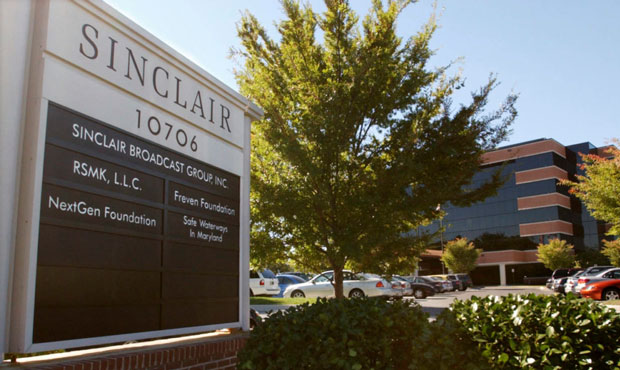SEATTLE NEWS ARCHIVES & FEATURES
Consolidation of local media should be everyone’s concern
Feb 21, 2018, 5:24 PM | Updated: Feb 22, 2018, 6:47 am

Sinclair Broadcast Group, Inc.'s headquarters stands in Hunt Valley, Md. Sinclair Broadcast Group is one of the nation's largest local TV station operators. (AP Photo/Steve Ruark, File)
(AP Photo/Steve Ruark, File)
Here’s a story you’ve not heard much about in the broadcast media – even though it is about the broadcast media and specifically, broadcasters here in Seattle.
— if you’ve not heard of the company yet, you might over the next few days. It’s already one of the largest broadcast companies in the United States. Sinclair is looking to join the largest with the proposed purchase of for $3.9 billion.
The Federal Communications Commission currently is deciding on the matter.
Why should you care? Here are a few reasons:
Currently, Sinclair owns television and radio. With the purchase of Tribune, that would give the company ownership of , or two of the four major local television stations — 50 percent of the market.
This will likely lead to one of two situations:
1. The company will choose to merge the two stations into one.
����…
2. The company will keep both and use shared content.
The Sinclair Broadcast Group deal
You might not like the media. Or more specifically, you might like some and dislike others. But what should worry you – regardless of your political, social or business beliefs – is diminished competition and a reduction in the number of voices who are setting the news agenda for your region.
With the national acquisition of an additional 42 stations, by the FCC’s own estimates. That’s nearly three of every four homes.
Much of what has been said and written nationally about Sinclair recently has been about how the company uses what are called “must runs” on its television stations to advance its political views.
The New York Times had a front-page story last week about a , the chairman of the FCC who advanced rules to allow for this massive acquisition in the first place.
These two points are worth close attention. But they are secondary to a larger potential problem.
The concentrated ownership of media – any media — is a potential problem not just with antitrust laws but Democracy itself.
The competition between reporters, editors, and salespeople at the major broadcasters benefits viewers, the stations’ business partners, and employees of those companies. It benefits the people who want a civic problem in Tacoma to get attention, who want to see their sports teams in Seattle covered or who simply want more eyes on the region’s civic successes and failures.
That attention is the ore we mine to make informed decisions.
This isn’t about conservative versus liberal, or one station pitted against another. It’s about what makes citizens aware, informed and decisive. Reducing the number of media owners means reducing the number of voices. After some pushback, Sinclair has — including Q13 — and reduce its dominance of local television and make the deal pass muster.
You should hope so. Because sometimes, you’ll never know what you don’t hear.











